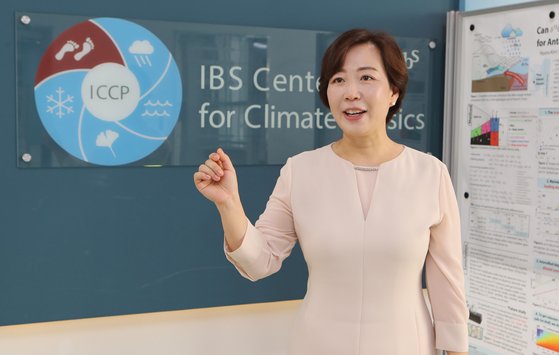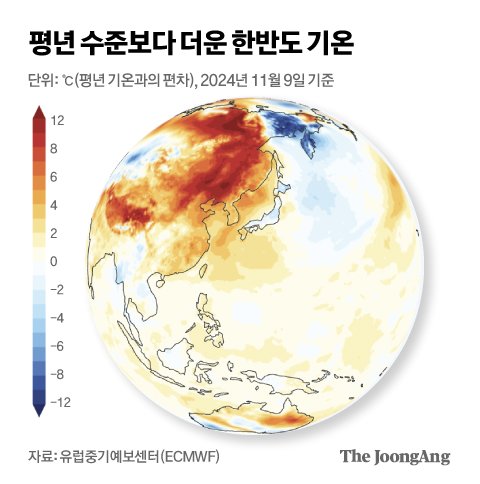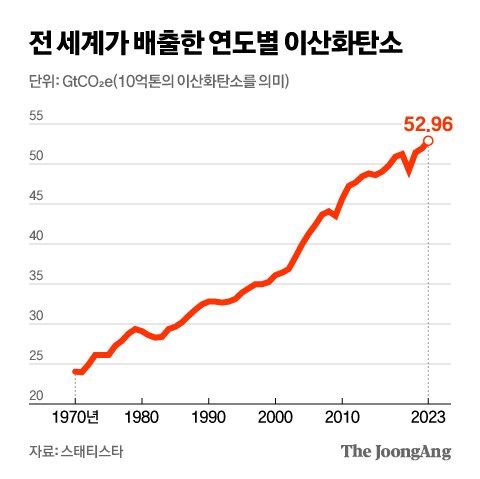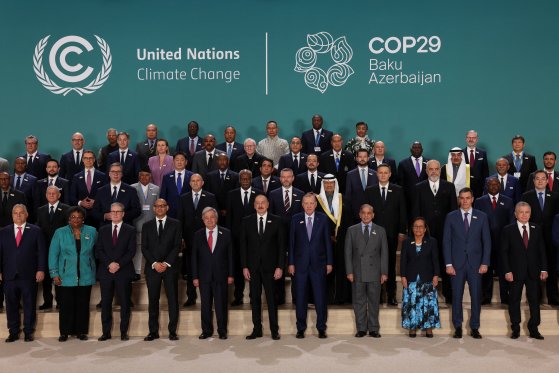On the 8th (local time), the Jovkovci Dam near the village of Elena in central Bulgaria dried up due to a record-breaking drought. AFP = Yonhap News
It was expected that temperatures would rise compared to last year, but the current rate of increase is exceeding expectations. I’m embarrassed.
Regarding the prediction that this year will be the hottest year in the history of meteorological observation, Professor Lee Jun-i of the Pusan National University Climate Science Research Institute said, “I think an increase in excess of 1.5 degrees Celsius, which is the Paris Agreement standard, should be accepted as a fait accompli.” As a climate scientist, he participated as the lead author in the 6th report of the Intergovernmental Panel on Climate Change (IPCC).
Climate scientists are growing concerned as this year is expected to be the first year that global average temperatures rise by more than 1.5 degrees Celsius compared to pre-industrial levels. 1.5 degrees is the Maginot line agreed upon by the international community to prevent the climate crisis at the 2015 Paris Climate Change Agreement.
![The degree has already risen by 1.5 degrees, and even Trump is hitting us… Paris Climate Agreement in Crisis [이슈추적] The degree has already risen by 1.5 degrees, and even Trump is hitting us… Paris Climate Agreement in Crisis [이슈추적]](https://pds.joongang.co.kr/news/component/htmlphoto_mmdata/202411/13/5be25095-c874-4226-8730-1e2045866a5a.jpg)
Reporter Shin Jae-min
The World Meteorological Organization (WMO) announced on the 11th (local time) that the average global temperature rose 1.54 degrees from January to September this year, breaking the record for the highest average monthly temperature for 16 consecutive months. As the trend of high temperatures in the Northern Hemisphere continues in October, this year is expected to be the first year in which the global average temperature rises by more than 1.5 degrees.
The European Union’s Copernicus Climate Change Institute (C3S) also predicted that this year’s average annual temperature will exceed 1.55 degrees above pre-industrial levels. “The ambitious plans of the Paris Agreement are in great danger,” said WMO Director-General Celeste Saulo.
“We are confused by the rate of warming that exceeds expectations” Heated oceans are the cause
Climate scientists say they are perplexed by the faster-than-expected rate of climate change, although the Paris Agreement standard for a ‘long-term rise of 1.5 degrees’ has not yet been reached.

Lee Jun-i is a professor at Pusan National University. Reporter Song Bong-geun
Initially, scientists expected that the temperature rise would slow down starting this fall with the development of La Niña (a phenomenon in which sea temperatures in the Eastern Pacific are colder than normal), but temperatures did not drop in October as global sea temperatures remained high. This means that the Earth is not cooling down due to the heated ocean. Professor Lee said in a phone interview, “This year is the year in which La Niña develops, so I expected the temperature increase trend to slow in October, but I was surprised by the rebound.”

Reporter Shin Jae-min
The ocean’s heat absorption has been at record levels since last year. According to the WMO, from 2005 to 2023, an average of 3.1 million terawatt hours (Twh) of heat was absorbed into the ocean per year, which is more than 18 times the global energy consumption last year. Professor Lee explained, “The heat contained in the ocean lasts for a long time and has an impact, so even if we do not emit carbon immediately, (the warming trend) will not decrease immediately.”
“Breaking carbon emissions records… “It won’t be long before the rise exceeds 2 degrees.”

Reporter Shin Jae-min
With global carbon emissions hitting record highs every year, there are also predictions that climate change will accelerate further in the future. According to ‘Statista’, a global market analysis agency, carbon dioxide emissions last year were 52.96 billion tons

Jeong Soo-jong, professor at Seoul National University Graduate School of Environmental Studies. Reporter Kim Gyeong-rok
“Current carbon emissions are exceeding the ‘high carbon scenario’ (a 3-degree rise in 2100 with carbon emissions similar to or higher than the current level),” said Jeong Soo-jong, a professor at Seoul National University’s Graduate School of Environmental Science and a carbon cycle expert. “It’s not as far away as expected,” he warned.
“Arctic warming of 5 degrees… “Bitter cold and strong rain clouds may become frequent.”

Kim Baek-min, professor at Pukyong National University. Photo: Professor Baekmin Kim’s office
Polar regions such as the North and South Poles are warming at a much steeper rate. As the Arctic ice is rapidly melting, the global average sea level is rising at a rate of 4.77 mm per year between 2014 and 2023. This is more than double the rate from 1993 to 2002.
Kim Baek-min, a polar expert and professor of the Department of Environment and Atmosphere at Pukyong National University, said, “I am surprised that climate change in the Arctic is progressing faster than computer simulations.” He added, “Climate change in the Arctic is 4 to 5 times faster than the global average and is currently estimated to have risen by about 5 degrees.” said.
Rapid warming leads to an increase in extreme weather events. Korea is no exception. Professor Kim said, “Generally, when the Arctic warms up, the cold air from the Arctic comes down to the Korean Peninsula and a bitter cold wave appears.” He added, “Not only is there an extreme temperature change, but there is also a situation where very strong rain clouds are formed where the cold and warm air from the Arctic meet. “It could become more frequent,” he said.
COP29 “disappointing results” as Trump’s re-election weakens

Leaders from various countries attended the 29th Climate Change Conference held in Baku, Azerbaijan on the 12th (local time). Reuters = Yonhap News
The international community is holding the 29th Conference of the Parties (COP29) to the United Nations Framework Convention on Climate Change in Azerbaijan on the 11th (local time) to discuss measures to respond to the climate crisis, but the outlook is not bright.
As former President Donald Trump, who had called global warming a hoax, won re-election, the possibility of the United States withdrawing from the Paris Agreement has increased. John Podesta, climate envoy of the current US administration, Joe Biden, who attended COP29, pointed out, “Trump’s election is a disappointing result for climate activists.”
“We need to prepare for a 2-degree rise… “A strong control tower is needed.”
Climate scientists warned that, along with more intensive reduction plans, measures should be taken that assume a scenario of a rise above 2 degrees. Professor Lee Jun-i emphasized, “Climate change of 1.5 degrees or more can be prepared only when all areas, including energy, food, economy, and disasters, as well as atmospheric policies, are linked,” and added, “A strong control tower is needed to respond to climate change.” did it
It was also pointed out that we need to accept the fact that we will face rapid climate change in the near future and strengthen adaptation policies accordingly. Professor Jeong Soo-jong said, “It is a predetermined process for the Korean Peninsula to change from a temperate climate to a subtropical climate,” and warned, “We may be insufficiently prepared for the ongoing meteorological disasters that occur with a frequency of hundreds of years.”
Reporter Jeong Eunhye [email protected]
![Rep. Seo Mi-hwa said, “We will provide relief to young people suffering from generational separation by revising the law within the year.” [이상한 나라의 세대분리법⑧] Rep. Seo Mi-hwa said, “We will provide relief to young people suffering from generational separation by revising the law within the year.” [이상한 나라의 세대분리법⑧]](https://m.kukinews.com/data/kuk/image/2024/11/12/kuk20241112000290.jpg)
